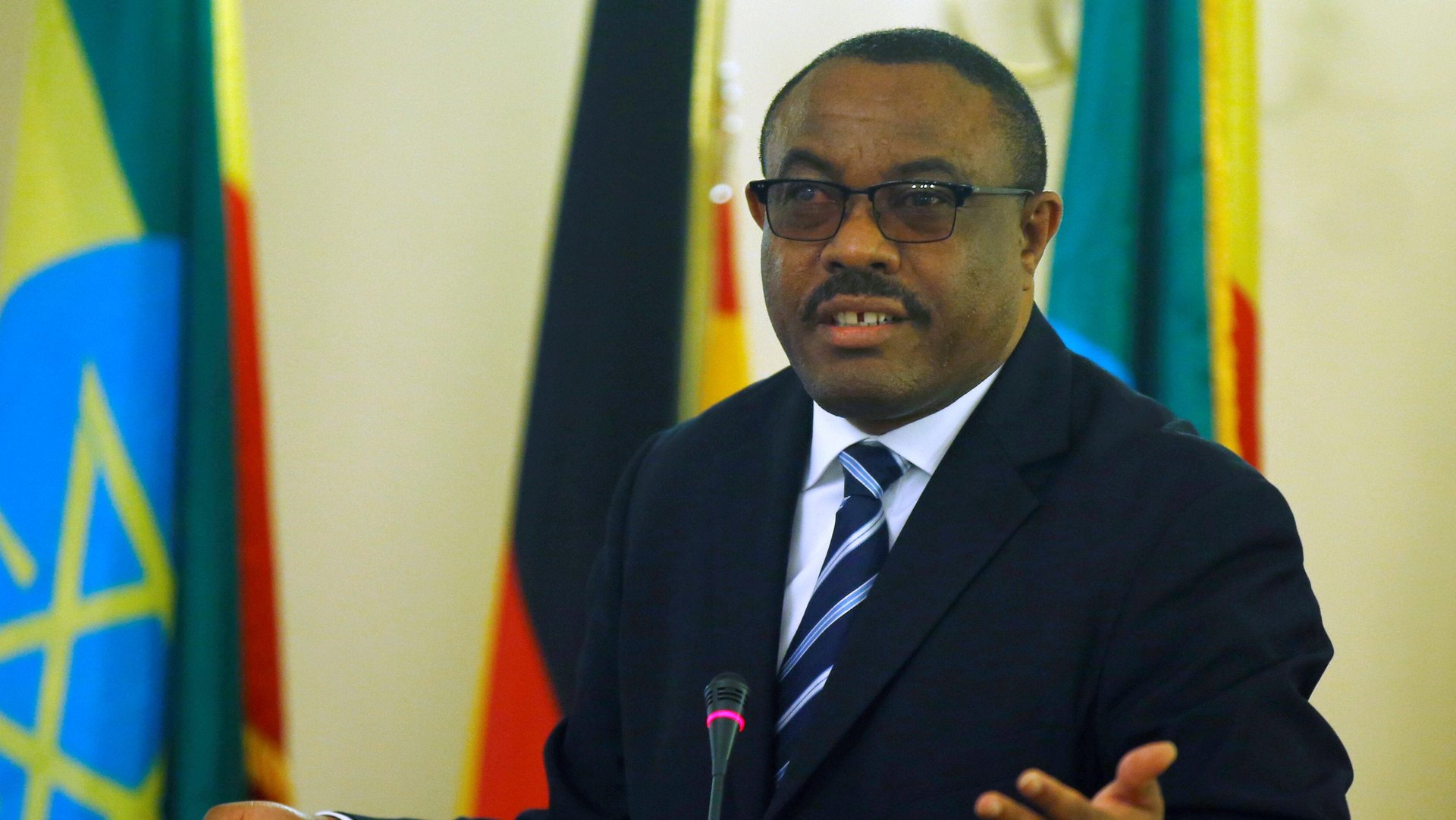Ethiopia’s prime minister has stepped down
Ethiopian prime minister Hailemariam Desalegn has stepped down.


Ethiopian prime minister Hailemariam Desalegn has stepped down.
His departure comes days after senior opposition figures and prominent journalists were released in a bid to calm lingering tensions that have troubled the Horn of Africa nation for over two years. In a televised speech, he said that he was resigning as both premier and chairman of the Ethiopian People’s Revolutionary Democratic Front to allow the dialogue to continue.
“Unrest and a political crisis have led to the loss of lives and displacement of many,” he said. “I see my resignation as vital in the bid to carry out reforms that would lead to sustainable peace and democracy.”
Desalegn’s resignation brings into sharp focus the uncertainties over how the ruling coalition will now address issues related to federalism, social justice, land reform, equitable economic development, besides opening up political dialogue and creating national consensus.
The 52-year-old came to power in 2012 after the death of former prime minister Meles Zenawi. Under his six-year reign, the country took crucial turns both politically and economically, overseeing both creeping authoritarianism and immense economic growth.
Since late 2015, the Oromo and Amhara communities have protested across the country, demanding land reform, full political participation, and an end to human rights abuses in the country. The demonstrations began in response to the government’s “Addis Ababa Integrated Master Plan,” which sought to expand the capital into neighboring towns and villages inhabited by the Oromo, the country’s largest ethnic group.
The government responded with deadly force, imposed an emergency rule, banned the posting of updates on Facebook, repeatedly blocked the internet, and declared that watching opposition, diaspora-run television stations illegal.
A year into the protests, Desalegn admitted the government’s heavy-handedness, announcing the death of more than 500 people. Activists and advocacy group Human Rights Watch disputed the figures, putting the number at more than 1,000 dead, with tens of thousands placed in detention.
Internal challenges also continued to mount in 2017, as clashes between ethnic Somalis and Oromos, who together constitute more than 40% of the country’s over 100-million-population, intensified. The ethnic violence left dozens dead and triggered a humanitarian crisis that has left tens of thousands of people displaced.
But in a rather unexpected move, Desalegn announced in early January that the government would release some political prisoners, including those awaiting trial, and turn a controversial detention facility into a museum. The pardons were a way to foster reconciliation, he stated, and observers said it signaled a promising turn towards real democracy. Since then, more than 6,000 prisoners have been released.
Beyond the political reality in Ethiopia, Desalegn came to power at a time when Ethiopia’s economy was starting to grow. With an expanding population, improving infrastructure, and increasing alliance with China, Ethiopia remained a bright spot in Africa. Poverty levels fell in Africa’s second most populous country, and economic growth remained consistently high for more than a decade without relying on a natural resource boom.
Hassen Hussein, a Horn of Africa analyst and assistant professor at St. Mary’s University of Minnesota, said that given the government’s forceful nature under Desalegn, his resignation only meant “an ignominious end to an ignominious tenure.”
Befeqadu Hailu, a journalist who was imprisoned under Desalegn, called his departure a cornerstone for Ethiopian politics. “It was a bit expected but still it makes it very crucial period,” he told Quartz via email. “Interesting developments will be uncovered so soon.”